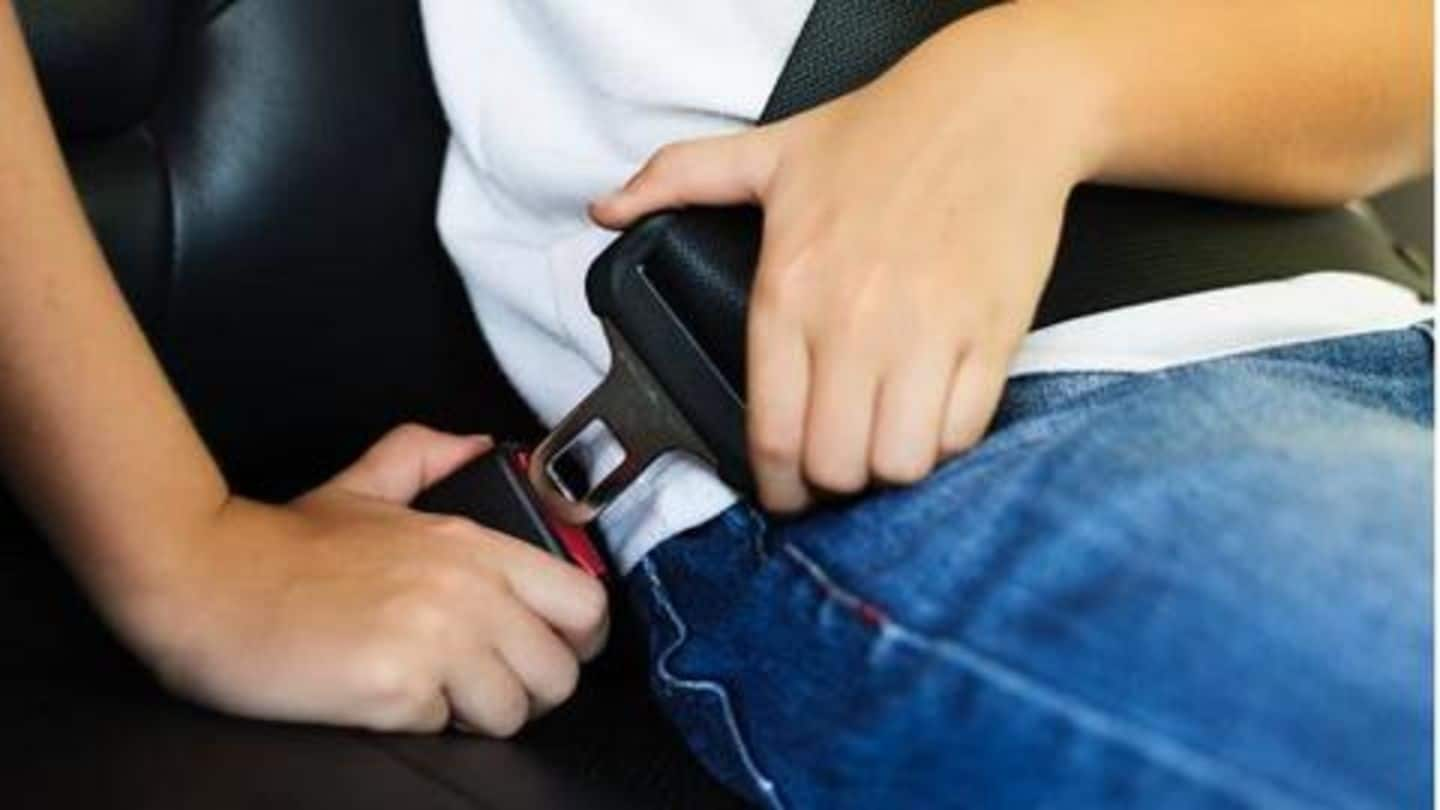
90% Indians don't secure their children with seat belts
What's the story
In what may not come as a shock to many, nine out of 10 Indians don't secure their children with seat belts while traveling in four-wheelers thus putting them at risk, according to a study.
The report titled 'Rear Seat-Belt Usage and Child Road Safety in India' was launched by Union Minister for Road Transport and Highways, Nitin Gadkari, in Delhi yesterday.
Here's more.
Details
80% of parents don't even buy helmets for their children
It's not just children, even 98% of the respondents weren't seen using rear seat-belts.
The report further revealed that 90% also don't ensure their children wear helmets on two-wheelers.
In fact, 80% of them don't even buy helmets for their kids.
This, despite the fact that 64% of the parents surveyed considered city roads unsafe for children, and believed child safety laws are needed.
Report
Study was conducted by Nissan India and Save LIFE Foundation
The road safety report was conducted by Nissan India and a New Delhi-based non-profit, Save LIFE Foundation.
It had responses from 6,306 face-to-face interviews with people across 11 major cities, 100 in-depth expert interviews and two focused group discussions.
The responses also included on-site observations to gauge compliance of CBSE School Bus guidelines as well as usage of rear seat belts.
Quote
9,408 children died in road accidents in 2017: Tewari
Piyush Tewari, CEO, Save LIFE Foundation told media that the latest data by Ministry of Road Transport and Highways revealed that 9,408 children lost their lives due to road accidents in 2017. "This translates to 26 child deaths on Indian roads every day," he said.
Issue
'Will request Gadkari to include child-safety issue in BJP manifesto'
"It is high time that basic provisions such as child helmets, safety measures in school zones, child seats, special training for school bus and van drivers, and adult accountability be made mandatory," Tewari said, while reflecting on the report.
He added that they will request the Union minister (Gadkari) "to include the issue of child safety in the Bharatiya Janata Party's (BJP) election manifesto."
Comment
'Importance of wearing rear seat-belts is completely neglected in India'
Thomas Kuehl, President, Nissan India Operations, said while there have been initiatives of spreading awareness about road-safety in India, "importance of wearing rear seat-belts is completely neglected."
He mentioned his safety campaign with Save LIFE Foundation and SHARP "will set a strong base to bring attention towards this important issue."
"First phase will focus on educating over 200,000 children in 240 schools," he informed.
Gadkari
'Even with police protection, red-beacon car I faced an accident'
According to the 2017 data of the transport ministry, 53 accidents and 17 deaths occur every hour due to road accidents.
"Each year we have 5 lakh accidents and 1.5 lakh deaths. It's very unfortunate that this is the highest in the world...even with the police protection and red-beacon car I faced an accident and hence I'm very sensitive about it," Gadkari said.
Deaths
Gadkari considers unsafe roads, accidents as his personal failure
Gadkari further said that road deaths have been reduced "by 4% this year," but the ministry noticed that in some states, accidents and deaths have increased.
"We have decided to publish the report of every state," he said.
He added although his ministry has many success stories but "this (road accidents) is one where I always feel that this is a failure for me."
Information
Government spent over Rs. 20,000 crore on eliminating black spots
Gadkari also said that the transport ministry is working on removing the 'black spots' in the country. Black spots are spots in different cities where road accidents are common. He added that the government has spent more than Rs. 20,000 crore on this
Action
'It'll be mandatory to include seat-belt alert system soon'
The 61-year-old BJP leader also said that his ministry have taken preventive measures in automobile engineering.
"It'll be mandatory to include the seat-belt alert system soon," he said.
Gadkari added that "some serious approach" is needed regarding driving licenses (DL), which is the easiest thing in India to obtain.
"We need training institutes and work on elimination of duplication of DLs," he added.